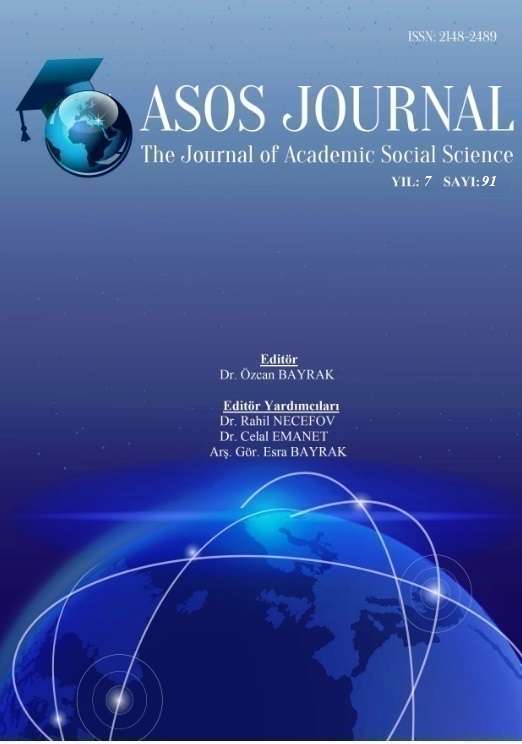Author :
Abstract
Bu araştırmanın amacı Ters-Yüz Sınıf Modelinin 10. Sınıf İngilizce dersinde öğrencilerin akademik başarılarına etkisini incelemektir. Araştırma 2017-2018 Eğitim-Öğretim Yılı II. döneminde İstanbul Maltepe Atilla Uras Anadolu Lisesi 10/A ve 10/B sınıflarında 6 hafta süre ile yürütülmüştür. Çalışmada öntest-sontest kontrol gruplu yarı deneysel desen kullanılmıştır. Deney ve kontrol grubu olmak üzere 2 grup belirlenmiştir. Deney grubunda dersler Ters-Yüz sınıf modeli ile işlenmiştir. Kontrol grubunda ise geleneksel yöntem kullanılmıştır. Veri toplama aracı olarak başarı testi ve İngilizce dersine yönelik tutum ölçeği kullanılmıştır. Çalışmanın başında her iki gruba da tutum ölçeği ve başarı testi öntest olarak uygulanmış, sontest olarak ise başarı testi uygulanmıştır. Verilerin analizinde, öntest ve İngilizce dersine yönelik tutum, ortak değişken olarak kabul edilmiştir ve ortak değişkenlerin etkileri kontrol altına alındığında, Ters-Yüz sınıf modelinin akademik başarıya etkisini belirlemek amacıyla tek yönlü kovaryans analizi (ANCOVA) kullanılmıştır. Elde edilen verilere göre deney ve kontrol grubu başarı puanları arasında istatiksel olarak anlamlı bir fark bulunamamıştır.
Keywords
Abstract
The aim of this study is to investigate the effects of Flipped Classroom Model on the academic achievement of 10th grade students in English lessons. The study was carried out for 6 weeks with 68 students in 10/A and 10/B classes at İstanbul- Maltepe Atilla Uras Anatolian High School in the II. Term of 2017-2018 Educational Year. In this study pre-test/post-test quasi-experimental design with control group is used. Two different groups took part in this study: the experimental group and the control group. In the experimental group the lessons were carried out via Flipped Classroom Model. In the control group traditional method was used. To collect the data, an achievement test and attitude scale towards English course were used. As pre-test, achievement test and attitude scale were applied and as post-test achievemet test was used. Pre-test and attitude grades are accepted as covariates and one-way analysis of covariance ( ANCOVA) is used to find out the influence of flipped classroom model on the academic achievement of students by taking the effect of pre-test and attitude grades under control. The findings have indicated that there is not a statistically significant difference between the academic achievement of the groups.





